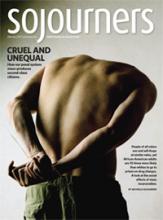When Pastor Terry Jones threatened to burn Qurans at his church in Florida this fall, he hurt a lot of Muslims I know. He also hurt a lot of Christians. So many of my Christian friends approached me and said, "That man does not represent me or Christianity, and certainly not the teachings of Jesus."
Of course, I knew that. And the reason is simple: It's because I have come to know so many Christians through common activities, from service projects to athletic competitions.
In their new book American Grace, sociologists Bob Putnam and David Campbell show that this kind of experience is actually how tolerance is built in a diverse society. They report that one of the most effective ways to improve attitudes toward people of different religious background is to have a positive, meaningful encounter with them. In other words, they show that when people come together through common activities, their attitudes toward one another improve -- even if they enter into the relationship with negative or suspicious attitudes about the other’s religion. Putnam and Campbell call this the "Pal Al Syndrome."
If we value interfaith cooperation, and if we know we can build it through meaningful, positive encounters between religiously diverse people, we should expand the opportunities for these encounters.
At Interfaith Youth Core, we believe that two kinds of institutions in the U.S. have huge potential to facilitate these experiences: houses of worship and college campuses.
Read the Full Article
